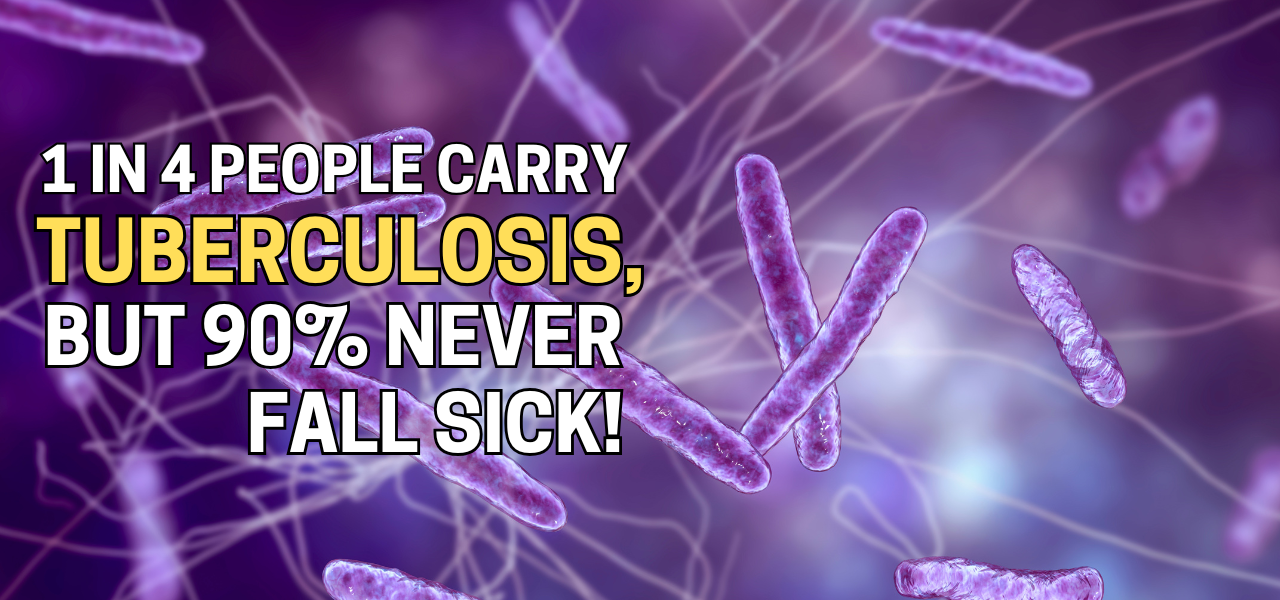Author: Dr. Anupam Gaur
-
Signs Your Cells Are Aging Faster Than You Are (And What to Do About It)
—
by
You might be 35 on paper—but what if your body is functioning like it’s 50? Chronological age is what your birth certificate shows. But biological age—the true measure of how old your cells feel and function—tells a far more accurate story about your health, energy, and future. In today’s fast-paced, high-stress, ultra-processed world, millions are…
-
The Power of Health Optimization: A World Health Day Awakening
—
by
Every year, the world comes together to celebrate World Health Day—a reminder of how precious our well-being is. But let’s be honest: most people only think about health when they lose it. What if we flipped the script? What if health wasn’t just about treating disease but about optimizing our body’s full potential? Why Settle…
-

Think Tuberculosis Spreads Easily? Science Says Otherwise!
—
by
World TB Day: Understanding the Real Cause of Tuberculosis Every year, March 24 marks World TB Day, a crucial reminder of the ongoing battle against tuberculosis (TB). Despite medical advancements, TB remains one of the top 10 causes of death worldwide, with 10.8 million new cases with 1.25 million deaths in 2023 (WHO). including 6.0 million…
-
Oral Health: Your First Line of Defense Against Oral Cancer
—
by
The Unseen Link Between Oral Health & Cancer Did you know that oral cancer is the 13th most common cancer globally, with over 377,700 new cases annually (Globocan 2023)? In India alone, oral cancer accounts for 30% of all cancers, and the 5-year survival rate is just 50%. Oral health is more than just maintaining…
-
The Growing Risk of Renal Cancer – Raising Awareness on World Kidney Day
—
by
Every year, World Kidney Day serves as a vital reminder of the importance of kidney health. Our kidneys are not just filtration units; they regulate blood pressure, balance electrolytes, and detoxify the body. However, a lesser-known fact is that poor kidney health is linked to a higher risk of cancer, particularly renal cell carcinoma (RCC).…
-
Scientists Rethink Cancer: Is It a Metabolic Disorder Rather Than a Genetic Disease?
—
by
For decades, cancer has been widely understood as a genetic disease—a result of accumulated mutations in DNA that lead to uncontrolled cell growth. This theory has shaped cancer research, treatment strategies, and pharmaceutical advancements. However, an increasing number of scientists are now questioning this perspective, proposing instead that cancer is fundamentally a metabolic disorder. This…
-
Can You Rebuild a Life Where Cancer Can’t Return?
—
by
On this World Cancer Day, many of us pause to reflect on the lives disrupted by cancer, the lives we’ve lost, and the lives that continue to fight. But today isn’t just about remembering; it’s about awakening to the deeper truth about cancer and the path to not just survive, but to thrive. Imagine hearing…
-
Discover a Healthier, Youthful Version of Yourself with Health Optimization
—
by
Ageing with grace is a goal cherished by many across the globe. While numerous products and treatments claim to offer youthful skin or heightened energy, few actually focus on the essential internal health that underpins durable anti-ageing. At the Centre for Optimum Health (CFOH), our emphasis is on health optimization to facilitate anti-ageing by addressing…
-
How Air Pollution Affects Your Health: CFOH’s 3I Program to Optimize Wellness
—
by
Air pollution is more than just a nuisance—it’s a serious health risk that affects millions of people around the world. Every day, harmful pollutants are released into the air from vehicles, industries, agriculture, and even household products, posing a threat to our respiratory, cardiovascular, and mental health. The good news is that you don’t have…
-
From Awareness to Action: How CFOH Empowers You to Manage Diabetes Holistically
—
by
Diabetes’ Impact on the Body Diabetes can significantly impact various organs and systems, potentially leading to complications if left unmanaged: 1. Heart and Blood Vessels 2. Kidneys 3. Eyes 4. Nerves System 5. Oral Health 6. Digestive System 7. Skin How CFOH Can Support Diabetic Health At the Centre for Optimum Health, we understand that…
